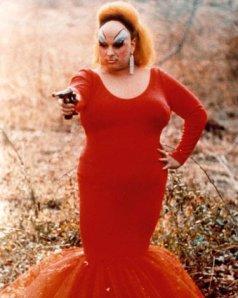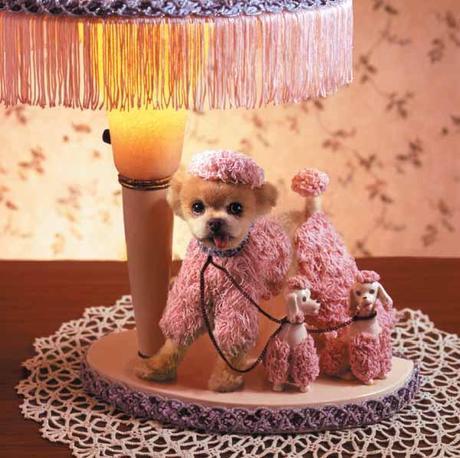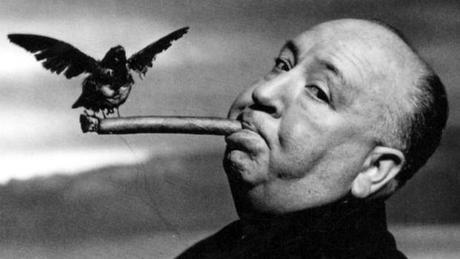
One of the greatest performers of all time–she can make us wet our pants with laughter or fear.
by Bonnie Applebeet and Orquidea Morales
I am so excited to be back on HA! to share a conversation I had with a good friend of mine who studies horror, media, zombies, and Borderlands at the University of Michigan. I always found it fascinating that we, as people with such opposite inclinations, could get along so well, so I sat down one day with Orquidea Morales to ask her about what we thought the overlaps were between humor and horror. The results are wacky and provocative. We talk about Divine and Hitchcock, sex and stabbing, discomfort and vulnerability, all while theorizing the connections and territories between humor and horror. We hope you enjoy our sarcasm-laden conversation and treasure the insight into what two nerdy doctoral students might talk about over some burritos and Coke in a noisy restaurant.
On Kitsch and Camp

If you weren’t sure about its kitsch factor at first, the doily should clear things up.
APPLEBEET: So you study horror, and although I started out with humor and sort of branched off a little bit from that, do you think that had anything to do with us being friends? Like, what in particular we’re attracted to on those two different ends of the spectrum?
MORALES: I think the overlap between horror and humor has a lot to do with kitsch. And I think that’s kind of like something we’re both interested in.
APPLEBEET: That’s funny because I was thinking it was camp.
MORALES: So, what’s the difference?
APPLEBEET: Well, I always think of camp as like a way to perform, and then kitsch is like an object. So like, a bobble head is kitsch. So what were you thinking? So what is campy to you? Give an example of campy.
MORALES: When I think of campy I think of slapstick.
APPLEBEET: Huh. When I think of slapstick I think of slapstick.
MORALES: Whatever. I think camp and kitsch are so… in my brain they’re the same thing.
APPLEBEET: I think they’re intimately related, but I actually don’t know how.
MORALES: Because it feels kitschy, like, it’s someone that has the salt and pepper collection all over their house, and it’s hilarious. But when you put it on film, I feel like that’s campy.
APPLEBEET: When you put it on film it’s campy…
MORALES: Isn’t it?
APPLEBEET: But I would say that’s because it’s part of the performance on the film. So what’s that movie with Divine, and she’s a housewife and everything goes wrong?
MORALES: Polyester?
APPLEBEET: Polyester. So there’s kitsch all throughout her house. Her house is kitschy. But her performance is campy.
MORALES: But her performance is campy because I think the space allows for it. We read it as campy because of the setting itself. So the background was part of the performance.
APPLEBEET: I would say so.
MORALES: So how do we separate one from the other in film?
APPLEBEET: Maybe the difference is only that you call it kitsch because it’s actually an object, but it is performing as camp. Maybe it’s a Venn diagram. How do you feel about that?
MORALES: I’m happy with that.
APPLEBEET: So camp is one thing then. I feel like humor and horror are two different ends of the same spectrum, which is why I asked that question.
Oh the Humanity! Mortality and Hitchcock

Hitchcock? Hilarious?
MORALES: Alfred Hitchcock movies are so hilarious. Like he has such a dry, amazing sense of humor in his interviews and the way he sees humanity. He just is a weird observer of human nature, and he makes us laugh at it but also shows us how scary it is.
APPLEBEET: I could see that, but I think what makes it more scary than funny is that he makes human nature the butt of the joke. So the laughter is at his audience’s expense.
MORALES: Why is that scary though? Shouldn’t we be able to laugh at ourselves?
APPLEBEET: Well, it’s because he brings mortality into the picture! You’re gonna die!
MORALES: That tiny little detail… What’s wrong with that?
APPLEBEET: It makes you feel vulnerable.
MORALES: Well what’s wrong with that? What’s wrong about facing that your death?
APPLEBEET: I’m not saying it’s wrong, I’m saying it’s scary.
MORALES: I don’t know if I would agree with you. No, wait, I do agree with you, but I see the cathartic value in that. It makes it less scary for me.
APPLEBEET: I have always thought that why I studied humor was because it could sort of function as a catharsis of either human nature or a particular human condition, like oppression or alienation or anything like that. But I don’t see that in horror…
MORALES: That’s what I was going to say! Like maybe that’s our overlap too.
APPLEBEET: Because we both see these two things as catharsis.
MORALES: But we’re saying that these genres are about eliciting an emotional response, and that emotional response makes us let off steam. But you prefer the, “OH! That’s funny, hahaha…” and I prefer the “OH! My God my heart hurts that was so scary.” For me, that feels more cathartic than laughing.
APPLEBEET: And is it because it’s like, you actually know that the fear is in a contained environment? That your fear is orchestrated, planned rather than real?
MORALES: I think that’s part of it. There’s a sense of safety in watching a film.
APPLEBEET: I just suspend my disbelief so much that I feel like the fear is real.
MORALES: That’s the dream! Honestly I keep trying to find that vibe that makes me go, “Oh my god I’m so terrified I can’t move. “ That’s the dream for me.
APPLEBEET: The horror film of all horror films would do that for you?
MORALES: That would be amazing if they did. They don’t, because I know the conventions. I’m scared, but it’s not bad.
APPLEBEET: It’s not real. Hm.
MORALES: How do you do that?
APPLEBEET: I don’t know. Maybe I’m just naturally scared. I think the conventions work really well on me. The music tells me that something scary is about to happen, and that expectation makes it even worse.
MORALES: When I hear the music and I know something scary is going to happen, then it happens, and I’m like, “Yeah, I expected that.”
APPLEBEET: I’m trying to think of where humor and horror would come together on this. Like if I could somehow laugh at my fear… or am I doing that anyway when I listen to like Margaret Cho and she’s making fun of some bigot? I mean, am I laughing at my fear in that way? Really, is that cathartic emotion any different than screaming at my fear?
MORALES: I’m thinking of John Leguizamo, who has these amazing one-man-shows too, and there are moments when they’re so dramatic, and they’re so real, you feel his pain and you feel his trauma. And he’s really funny, but there’s something about comedians’ willingness to share that makes it easier for us to be emotional with them. I think in humor there’s more a sense of openness, at least stand-up.
APPLEBEET: So what’s closed off about horror, then, by comparison?
MORALES: I don’t know. I think that’s why people try to get at the found footage movies. There’s a sense of “This is real. This actually happened to someone.” Maybe it’s that one-on-one relationship that you have with a stand-up performance than with an ensemble cast or a list of characters, so there’s more distance there. So I don’t think horror can achieve that one-on-one feeling the same way humor can.
APPLEBEET: There’s this website called DocumentingReality.com. Have you heard of it? It’s a membership oly website where people upload really gory images of real murder scenes, real corpses, really violent things.
MORALES: I might need to look at that.
APPLEBEET: You would love it.
MORALES: That sounds horrible.
APPLEBEET: I won’t put that on the internet.The message boards are often, even though these things are incredibly gruesome, people are joking about it. I’m not saying that judgmentally, but they’re almost kind of camping it. They’re making jokes about what they see, and being playful and cheesy and corny. That’s one weird way where I see these two things come together and I’m not really sure what to do with it.
MORALES: A friend of mine talks back at the screen and laughs in horror movies, I think because the level of discomfort is so great that the initial reaction is: scream, then laugh, and try to rationalize it one way or another as a form of defense when it’s too scary or too much. I laugh because I think it’s funny, but that’s because my brain is distorted. I always find that such an interesting reaction. You know they have those trailers for Paranormal Activity, and they show the audience response. That’s how the sell the movie! People scream, and gasp, then they laugh. And it’s the shared embarrassment that they’re all scared at this thing on the screen that they know is fake.
On Vulnerability and the Female Form

I mean… fierce. Cho is hilarious and scary.
APPLEBEET: That’s really cool. Maybe that’s it—sort of the thrill in being vulnerable for just a second. I guess you’re not as vulnerable in laughter though. There’s the thrill of being in on the joke with somebody, which is the opposite perspective.
MORALES: I think you’re vulnerable in laughter because we don’t all have the same sense of humor, obviously. So, you laugh at a joke and everyone looks at you like, “Why did you think that was funny!?”
APPLEBEET: That never happens to me. I don’t know what you’re talking about.
MORALES: Especially not in front of your students when you’re laughing at your own jokes.
APPLEBEET: No. Never.
MORALES: I’m trying to think of a good comedy/horror. There are so many of them!
APPLEBEET: A good one?
MORALES: Well… by definition they’re not so good.
APPLEBEET: But what was that Scary Movie I, II, III, IV…
MORALES: But those are gross-out films. I don’t like gross out potty humor at all.
APPLEBEET: Yeah. They’re not really making commentary.
MORALES: I watched M. I think it’s a Fritz Lang movie. It’s with Peter Lorre, who is amazing. M is really good. He’s this guy that kidnaps children. He is such a good actor, and this movie was terrifying, but it was not a horror movie, and it had moments that were really smart and funny, and I wouldn’t classify it as comedy or horror…
APPLEBEET: … but there were elements of both? What’s the lump-sum genre for horrifying and hilarious? Drama?
MORALES: Drama? No. That’s too much talking and not enough blood for my taste. I told my students that I didn’t like a movie because there wasn’t enough “stabby stabby shooty shooty.” They looked at me like I was crazy.
APPLEBEET: I’m sure. Aren’t psychological thrillers funny sometimes? Like there’s wit? Although , did you see Black Swan? Was that funny?
MORALES: No.
APPLEBEET: I don’t think so. There was not one funny part.
MORALES: That was uncomfortable.
APPLEBEET: Yeah. The whole damn thing. It wasn’t cathartic either… No, wait, it was cathartic for me, because I related to the performance drive and how that fractures you. It was cathartic for me.
MORALES: See, I think for me to feel like it’s cathartic, there have to be layers that make it less real. Black Swan was pretty realistic, but it made sense, and that’s uncomfortable.
APPLEBEET: Oh! The fear has to be irrational to be cathartic, like Human Centipede.
MORALES: Yeah. That’s disgusting by the way. Thank you for bringing that up. That movie is disgusting.
APPLEBEET: I never saw it but it looked pretty gross.
MORALES: Yeah those movies are just gross, and not in a good way.
APPLEBEET: Christopher Hitchens talked about vulnerability in laughter, but only when women do it, because he says when women laugh, it’s orgasmic, so there’s vulnerability in that.
MORALES: Yeah. That’s how I see it.
APPLEBEET: Me too. It makes a lot of sense to me. But, in all seriousness, women aren’t the only ones who laugh obviously. I’m always worried about laughter and vulnerability for that reason. I was trying to make that same connection with viewing horror and being vulnerable to other people.
MORALES: I’m trying to think of the expected audience. Comedy is hard. The assumption is that more men watch horror movies. That’s the assumption, but it is not the case.
APPLEBEET: So that’s the industry assumption? That more men watch horror?
MORALES: Yeah. But I’m not sure how that works for comedy.
APPLEBEET: I think that’s the assumption for comedy too. Because you have this weird little thing on the side called “women’s humor,” and it’s a specialty.
MORALES: So what is women’s humor?
APPLEBEET: So I would say early Roseanne Barr. Because she makes those “domestic goddess jokes,” and her jokes are sort of thematic. I would say Kathy Griffin as well.
MORALES: She’s hilarious.
APPLEBEET: She is hilarious. I would say that most people would say that’s women’s standup—the difference between comedienne and comedian. I’m not saying that women don’t breach that boundary, but they’re still breaching a boundary when they do it, and it’s a problem that we see it that way. So I think the audience is mostly expected to be male. And I wonder if in the really queer comedians, if that’s actually the case. If they see primarily a male or masculine or gay male audience.
MORALES: When you said Kathy Griffin, that was my thought.
APPLEBEET: Male audience or gay male audience?
MORALES: Gay male audience. Or a queer audience. Is that a new audience?
APPLEBEET: I don’t think so. I think it’s relatively new that it’s mainstream or at least visible. But, I mean, like camp performances have been since at least the early 1900s, and there’s humor in playing with gender roles. Which I guess could actually be horror for some people, like men in women’s clothing.
MORALES: That is pretty terrifying. I was thinking of that artist who did that performance where she’s in the middle of the room pulling a scroll out of her vagina. I never saw it, but a friend was telling me about it. The scroll had critics talking about her work, and people were offended and uncomfortable, so I think that when we talk about humor and horror overlapping, they have a lot to do with the female body. So I think that performance piece reflects that. It’s not horror and it’s not humor, but there is something horrific and uncomfortable that would probably elicit laughs and shock responses about her doing that. I think that’s an overlap.
APPLEBEET: Using the female body as either the butt of the joke or the core of the horrific?
MORALES: Yeah! I think the female body is the thing we prod to create humor or to create discomfort.
APPLEBEET: Which is like cross-dressing, because it’s not nearly as “funny” to see a biological woman in male clothes. So there is vulnerability in gender when it comes to humor. Hitchens was sort of on to something in putting those things together maybe, but not the way he did it.
MORALES: I think that sounded offensive.
APPLEBEET: Oh definitely! No, I use that for my students to get a really good example of logical fallacy.
MORALES: People who talk about horror talk about the female body as always marked as “other,” so it already is the space that the owner of the gaze, which is coded as male, can never be. So it adds that distance.
APPLEBEET: It’s a safe distance, weirdly.
MORALES: Right. So it’s a place to practice these fears or to play with these emotions without actually seeing yourself reflected.
APPLEBEET: I think that’s what Nancy Walker, who was one of the first people who looked at women’s humor, made the argument that it’s actually threatening for women to get the joke or to make the joke—to be aware enough of a situation to…. You have to understand something deeply to make a joke about it, even if it’s a silly joke.
MORALES: Growing up, did I ever tell you this? My aunt had the dirtiest sense of humor. The profanity, everything was hilarious. They were always talking about sex, but it was always just the women. They would always tell me, you obviously understand this, and I was six or seven. There was the assumption that I understood it. I understood some of it, but they would tell me, when you are in front of men, you don’t laugh about these things. There was this rule that even though I understood the jokes and the words, I was not supposed to show it. Because, that was not proper.
APPLEBEET: Did I ever tell you… because humor and sexuality don’t belong in the same place for women… that once I was making out with this guy, and I made a joke in the middle of it, and he laughed, and then he said, “Oh my god it’s so weird to laugh and be turned on at the same time by the same person.” You know what I mean? He actually had to stop for a second and get his wits about him before we could continue! It literally threw him off.
MORALES: I think that’s where the idea of the ditsy woman comes in. We laugh at her expense, but she’s never in on the joke. So we’re always laughing at her. Even though actresses that can play a ditsy part are always smart!
APPLEBEET: Well, they’re actually in on the joke!
MORALES: You have to be smart to play dumb that well.
APPLEBEET: It’s so typical of us to end up talking about women. Typical.
